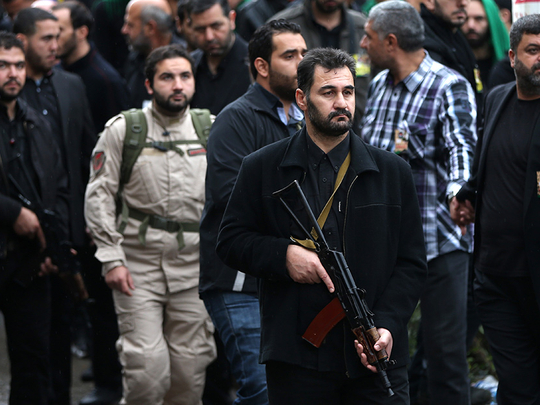
Beirut: Caught in the middle of self-created and very complex machinations, Hezbollah leaders have shown a readiness to engage the Future Movement in dialogue, which some observers have interpreted as rapprochement.
Simultaneously, Foreign Minister Jibran Bassil added fuel to the fire when he labelled such talks as being positively “useless,” further attacking the Lebanese Forces in the process that highlighted the abyss into which local politicians seemed ready to further sink the country.
The Hezbollah-Future dialogue ran into trouble rather quickly after March 14 politicians insisted that they ought to first focus on the presidential crisis, which contradicted the Speaker’s own take, after Nabih Berri insisted that there would be no preconditions to launch fresh discussions.
The unidentified deputy, who spoke with the March-14 Al Liwa’ newspaper, was adamant that nothing could be addressed until parliament elected a successor to Michel Sulaiman.
“We want to open the door to dialogue on the election of a president and not to agree [behind-the-scenes] on the person” who will reach Baabda Palace, the lawmaker reportedly said.
The Speaker, who is close to Hezbollah, maintained that an understanding had been reached between warring factions and that intense negotiations were under way to settle on an agenda. “What’s important now,” Berri reiterated to several of his visitors who were, in turn, quoted in newspaper articles, “is for the bilateral dialogue to kick off.”
Presumably, the Speaker was persuaded that controversial issues could be dealt with at a later stage.
The pro-Hezbollah daily Al Akhbar poured cold water on Berri’s efforts to bring the two parties together, saying that Future Party leader Fouad Siniora was determined to end the overtures made by former Prime Minister Sa’ad Hariri. Siniora apparently perceived dialogue to be limited to the presidential crisis as well as the Hezbollah militia’s deployment in Syria. According to Al Akhbar, Hariri wanted to go ahead with the talks, though the matter was far from settled.
Undeterred by any movements to end the presidential stalemate, Foreign Minister Bassil stressed that mere acceptance by the Lebanese Forces leader, Samir Geagea, of the Michel Aoun challenge to run in a two-man race was not enough. Bassil defended his father-in-law, the Free Patriotic Movement head, General Michel Aoun — now the official Hezbollah nominee for the presidency — declaring: “We don’t need foreign agreements to elect a president. We are seeking to elect a president according to local balances.”
In his pan-Arab daily Al Hayat interview, Bassil emphasised that the FPM did not seek foreign backing, and that it limited its discussions with foreign powers “to maintain our independence and self-respect.”
Although Bassil considered the Geagea stance as not being “enough” to end the presidential deadlock, the Foreign Minister did not clarify why March 8 in general and the FPM in particular, had boycotted 15 parliamentary sessions to date to elect his father-in-law.












